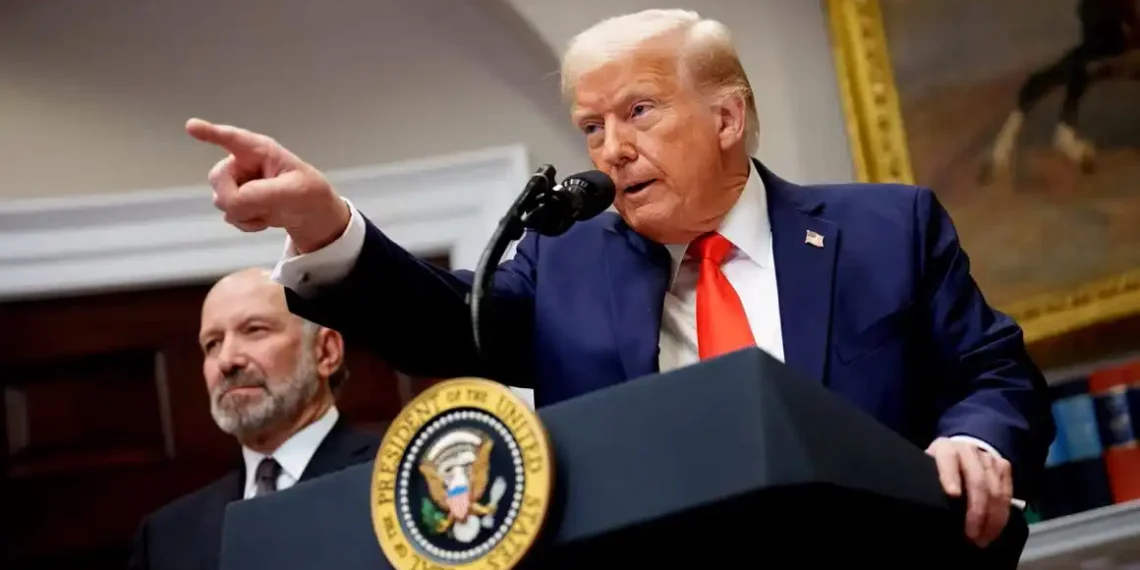Why Trump Needs the World to Believe He Crushed Iran’s Nuclear Program
President Donald Trump insists the U.S. “obliterated” Iran’s nuclear facilities. But why is he pushing this narrative so hard — even as intelligence reports quietly raise doubts?
It comes down to two major reasons: image and implications.
A Presidency Built on Power and Perception
Trump has long framed his leadership around strength, decisive action, and doing what no other president could. That image is central to his political brand. So admitting that Iran’s nuclear program may still be intact — or even partly functional — would deal a serious blow to his strongman persona.
More importantly, acknowledging incomplete success would raise the uncomfortable question: if the strikes didn’t finish the job, should the U.S. go back and try again? That’s a path fraught with risks — prolonged military engagement, possible escalation with Iran, and political fallout at home. It’s not a war Trump’s MAGA base wants, and it’s likely not one he does either.
Media Reports Spark White House Fury
Reports surfaced this week that a preliminary Pentagon intelligence assessment suggests the U.S.-Israel bombing campaign may have only set Iran’s nuclear program back by months, not years. The Defense Intelligence Agency reportedly holds “low confidence” that core infrastructure was destroyed.
Trump quickly doubled down. At a NATO summit press conference, he boasted of a “very, very successful” mission, adding: “It was called obliteration. No other military on Earth could have done it.”
His Defense Secretary, Pete Hegseth, slammed outlets like CNN and The New York Times for reporting the less-rosy intelligence, accusing them of trying to undermine Trump. But critics say the backlash only makes the administration look defensive — and raises even more doubts about the truth.
The Problem With Premature Victory Laps
Classified assessments take time, especially when it comes to evaluating underground nuclear sites in Iran. But the Trump administration declared victory almost immediately — even while B-2 bombers were still in the air.
That rush to claim success now puts Trump in a bind. Any intelligence that contradicts the “obliterated” narrative makes him look like he acted prematurely — or worse, misled the public.
The White House’s insistence on pushing its version of events has also distracted from real wins: a flawless bombing mission without U.S. casualties, a temporary ceasefire between Israel and Iran, and a major NATO defense spending commitment.
Trump’s Credibility Gap
CIA Director John Ratcliffe issued a statement claiming Iran’s nuclear capabilities were “severely damaged,” citing intelligence from reliable sources. DNI Tulsi Gabbard echoed that on X (formerly Twitter), saying Iran’s nuclear sites were “destroyed.”
But neither provided hard proof. And crucial questions remain: Did Iran move uranium stockpiles before the attacks? Are there secret sites still operating? Did the bombs truly penetrate hardened underground bunkers like Fordow?
Without clear answers, it looks like the administration is trying to spin the narrative — possibly even pressuring intelligence agencies to fall in line. That’s a dangerous echo of past U.S. missteps, notably the Iraq War and its debunked WMD claims.
Stakes Are Sky-High
If Iran’s nuclear program is still viable, Trump could face calls — from allies or Israel — to launch another round of strikes. That risks exactly the kind of prolonged Middle East entanglement Trump has tried to avoid.
It also sets a precedent: after taking bold military action, Trump now has to deliver long-term results or face the consequences. The International Atomic Energy Agency (IAEA) has said it’s possible Iran moved enriched uranium prior to the bombings — raising red flags that some nuclear capability may have survived.
And if Iran did salvage part of its program, Trump may face pressure to act again — or risk appearing weak after such bold claims.
Could This Undermine Diplomacy?
Uncertainty around the impact of the strikes also complicates potential peace talks. Trump’s envoy, Steve Witkoff, says negotiations with Iran could begin soon and that the administration hopes for a “comprehensive peace agreement.”
Some believe Iran may be ready to engage. Others fear the attacks will push Tehran to double down — even secretly pursue nuclear weapons for deterrence.
As for Trump, he’s downplaying expectations. “We may sign an agreement. I don’t know. I don’t think it’s that necessary,” he said. “They had a war. They fought. Now they’re going back to their world.”
That statement undercuts his own message — if Iran’s program was truly destroyed, why would a peace deal even be necessary?
The Bigger Picture
This moment may define Trump’s legacy in foreign policy. If future intelligence proves Iran’s program was, in fact, crippled, he’ll claim a historic victory. But if evidence emerges that Iran retained — or rebuilt — its capabilities, Trump’s premature celebration could backfire politically and diplomatically.
And if this becomes another chapter in the long history of presidents shaping intelligence to fit their narrative, it could mark a dangerous turning point for U.S. credibility on the global stage.
Because this time, it’s not just about politics. It’s about whether the world believes what America says about war — and whether it can afford not to.
This article was rewritten by JournosNews.com based on verified reporting from trusted sources. The content has been independently reviewed, fact-checked, and edited for accuracy, neutrality, tone, and global readability in accordance with Google News and AdSense standards.
All opinions, quotes, or statements from contributors, experts, or sourced organizations do not necessarily reflect the views of JournosNews.com. JournosNews.com maintains full editorial independence from any external funders, sponsors, or organizations.
Stay informed with JournosNews.com — your trusted source for verified global reporting and in-depth analysis. Follow us on Google News, BlueSky, and X for real-time updates.














